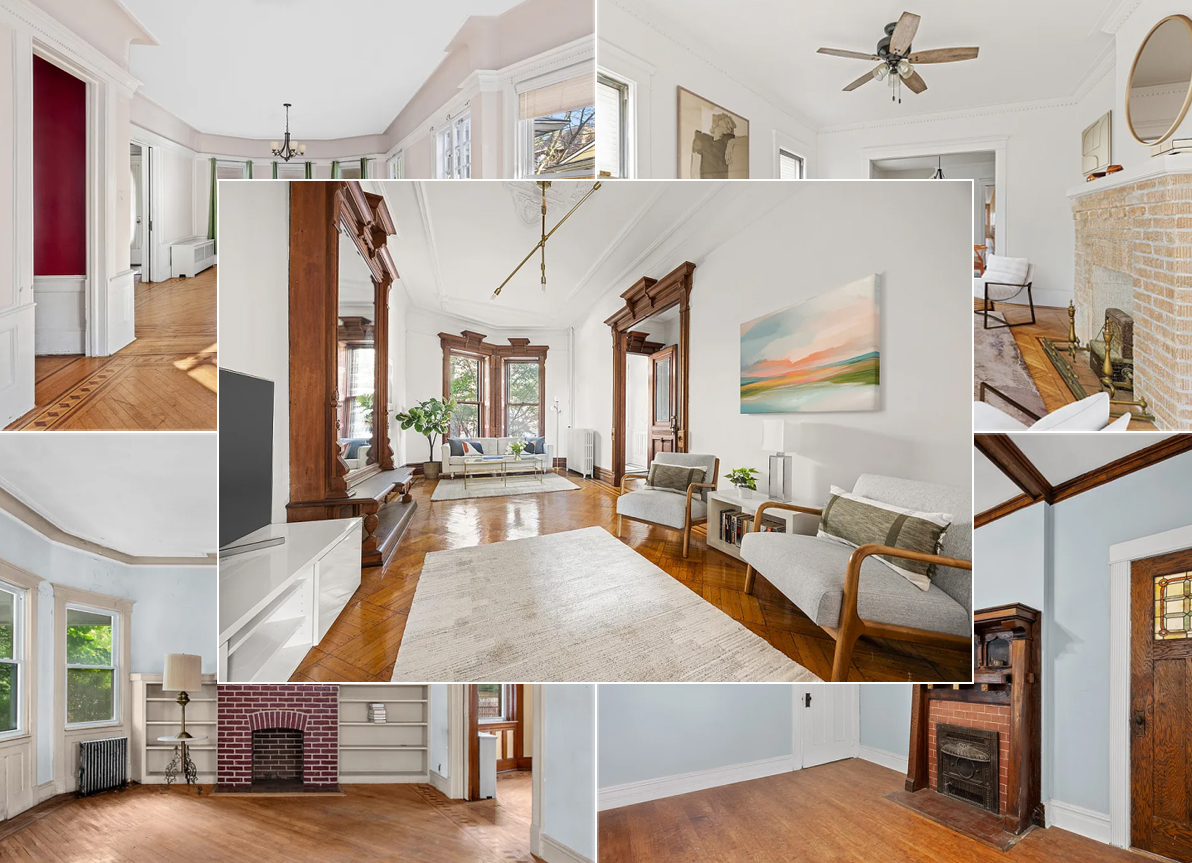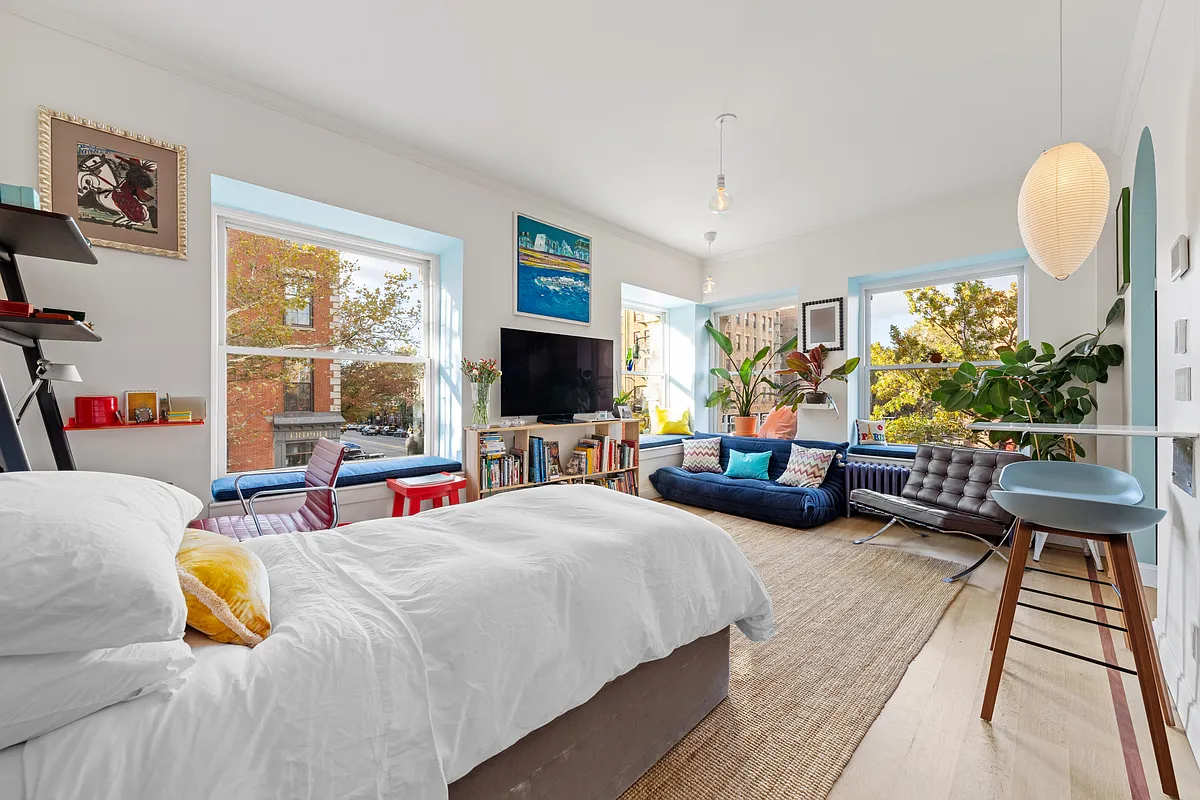No Regrets (or Complaints) From Dumbo Pioneer
While we enjoyed the piece on Pep Gay’s slice of old Dumbo for nostalgic and voyeuristic reasons alone, we were also struck by the contrast in attitude between the Spanish-born make up artist and the South 11th Street colonizers that generated so much discussion last week. Pep’s had a good run–almost a decade renting the…


While we enjoyed the piece on Pep Gay’s slice of old Dumbo for nostalgic and voyeuristic reasons alone, we were also struck by the contrast in attitude between the Spanish-born make up artist and the South 11th Street colonizers that generated so much discussion last week. Pep’s had a good run–almost a decade renting the 2,500-square-foot space for an initial price of $1,600 a month and recently a good bit more–and is now resigned to the fact that market forces are pushing him out. Instead of suing the landlord, Pep is focusing his energies on building his savings and dealing with the fact that he won’t be able to afford the building or neighborhood he helped colonize.
A Pioneer Knows When to Move on [NY Times]





You may not agree with us all the time, but things would get pretty dull around here without a little editorializing… Plus, people have ample opportunity to express themselves when they do disagree.
this thread (i.e., tenants fighting landlords to prevent condo conversion) is getting a bit old. To quote a venerable singer “God bless the child that’s got his own”. Those who ‘got’ find it hard to support the plights of those who ‘don’t. End of story.
Positive and moral law aside, this is still New York, people. Individuals have been pillaging each other over this little plot of land well before it was called New York, and will continue to hussle your ass even if the squeegees are all gone. So, when someone jacks you–whether by three card monte, the NYSE, or real estate–don’t act surprised. Give the “pioneers” $22 and a few trinkets and call it a day.
Editorializing? It’s his site for Pete’s sake, not a public space.
And the tenants knew that it was commercial and that they were also engaging in illegal renting but they did it anyway because they wanted the space. They could have gotten a space with a legal lease somewhere-oh wait but they probably couldn’t since most people want to see that a potential tenant actually can pay their rent.
Key point being overlooked– the landlord of South 11th street allowed RESIDENTS to live in an area zoned COMMERICAL? Why? Because he could make more money. Did he bring it up to code for residential living? No. That is why the law will now tend to protect the “pioneers” because the landlord should not benefit from illegally renting out a commerical space as residential — especially if the residnts made improvements. This legal point seems to elude people. When you own property, you have responsibilities, which include bring them up to code and using it as zoned. When you go outside those rules, there are laws designed to punish you, and protect others. This is a good thing. And as a homeowner and lanlord, I completely agree with them.
On a related note, I hate to admit it, but I am also a year-long reader who feels this blog has gotten too smug.
I started reading this site about a year ago, cause I’d like to own a brownstone of my own someday soon. While I don’t totally agree with the poster who complained that your tone has grown smug, I do feel that you should stop editorializing about tenant issues on this site.
I was a pioneer once. Tribeca in 1978. The landlord bought the building–now a 36 unit coop–for $350, a purchase price he made back in the first 2 years of ownership and rental to illegal tenants. When the state Loft Law was enacted, he both promised he wouldn’t comply and vowed to tear the building down and put a parking lot in its place. He sued over the constitutionality of the Loft Law all the way to the US Supreme Court. He lost. In the meantime, he made another couple of million in rent, all the while avoiding his obligations under the law.
My point? Don’t feel so sorry for the landlords who, in your opinion, are collecting sub-prime rent. (And I would add that you seem to know nothing about the “escalators” some tenants pay to live in lofts, which in some cases double the rents.) The landlords are still making money, believe you me.
Actually, if it is understood that renters do not get evicted simply because the neighborhood changes it would be built into the market affecting the value of real estate. So the new landlord would not have to spend 3x the amount to buy the building as the previous owner because it is understood that tenants have rights as well.
Of course it is not only real estate that doesn’t operate under a completely unregulated market. We understand that it is cruel to gouge victims of a natural disaster for access to fresh water or gasoline even though economic theory might suggest it is a good idea to provide incentives to sellers.
Anon @ 12:25 – What about people who owned the building prior to gentrification AND prior to the decline (ie. when industry rented these buildings?) – who compensated LLs for the huge decline in the buildings value (answer=no one) – but I guess you think its okay for LL to sustain huge capital losses but greedy and immoral to gain that value back?